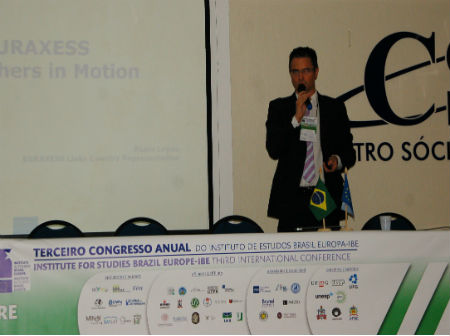Active Ageing Index 2012 launched in Cyprus at the European Year closing conference

Sweden, Finland and Denmark, followed by the Netherlands, Ireland and the United Kingdom, come at the top of the Active Ageing Index 2012, presented today in Cyprus at the Closing Conference of the European Year for Active Ageing and Solidarity between Generations. The index also shows that a majority of the Central and Eastern European countries as well as Malta and Greece have lots of space for improvement when it comes to their active ageing policies.
Developed by the European Centre Vienna, in collaboration with the United Nations Economic Committee for Europe (UNECE) and the European Commission’s DG Employment, Social Affairs and Inclusion, the Active Ageing Index (AAI) is a newly developed tool that offers national and European policy makers a way to measure the untapped potential of the older population.
The index measures the performance of the countries in four domains that together determine active ageing potential. These are: employment of older workers; social activity and participation of older people; independent and autonomous living of older persons; and an environment that enables active ageing. The experts who developed the index explain that the lower position on the active ageing index in many of the Central and Eastern European countries can be explained by their lower scores in the domain of "capacity/enabling environment", which brings them down in the ranking.
On the other hand, Cyprus and Portugal and also Estonia and Bulgaria do particularly well in the employment domain; while Italy, France and Spain are lagging behind. Spain and Italy and also Finland and Belgium do relatively well in the social participation domain, while the outcomes could be better for Estonia, Portugal and the United Kingdom.
The AAI, which will be available online, has been designed as a comparative tool that may track progress over time. The Index aims to help shape future research and policy agendas and influence how existing large-scale data-sets are developed to address the impact of population ageing by following the policy discourse of active ageing and solidarity between generations.
The coverage of the AAI will be extended in the near future to the member states of the UNECE that are not part of the EU27.
Informações: http://europa.eu/ey2012/ey2012main.jsp?langId=pt&catId=970&newsId=1749&furtherNews=yes




